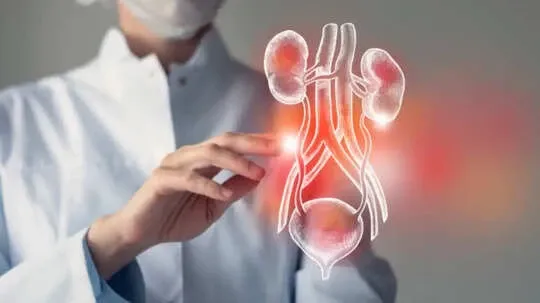While kidney disease often develops silently, lifestyle choices play a major role in prevention.
According to Dr Kshitij Raghuvanshi, urologist, Ruby Hall Clinic, here are a few common habits that can harm your kidneys and what you can do to avoid them.
Painkillers and kidney damage
Many over-the-counter painkillers - especially non-steroidal anti-inflammatory drugs, or NSAIDs, like ibuprofen and naproxen - are widely used for headaches, body aches, or menstrual cramps. However, frequent or unsupervised use can be dangerous. While NSAIDs work by blocking prostaglandins - chemicals that trigger pain and inflammation - they also help maintain healthy blood flow to the kidneys. "When they are blocked, blood flow to the kidneys is reduced, which can cause acute kidney injury, particularly in people with pre-existing kidney disease, dehydration, or heart problems," said Dr Raghuvanshi.
Long-term or excessive use may lead to chronic interstitial nephritis, a form of kidney inflammation that can progress to permanent kidney failure. The risk increases further when multiple painkillers are combined or recommended dosages are exceeded.
Excessive salt
While you may believe that alternatives like sea salt or Himalayan pink salt are healthier than table salt, according to experts, all salts are chemically the same - sodium chloride - with only negligible differences in trace minerals. And so, the real danger lies in excessive sodium intake. High sodium levels raise blood pressure, which is a leading cause of kidney damage. When the body is overloaded with salt, the kidneys must work harder to excrete the excess. Over time, this strain can reduce kidney function and contribute to chronic kidney disease.
"The solution is not to switch to a different type of salt but to limit overall sodium consumption, regardless of the source," Dr Raghuvanshi added.
Over-hydration
While it is important to drink adequate water and stay hydrated, too much of it can be harmful as well. Drinking six to seven litres a day does not protect the kidneys and can even be harmful. "Excessive water intake can cause hyponatraemia, a condition where blood sodium levels drop too low. This forces the kidneys to work overtime to excrete the excess water, and in severe cases, it may lead to brain swelling, seizures, or even death," said Dr Raghuvanshi.
For most healthy adults, drinking around two to three litres of water daily is sufficient, though this can vary based on physical activity, climate, and individual health. The best rule of thumb is to drink when you feel thirsty rather than forcing large amounts of water.
What precautions should you take before consuming painkillers?
Whether using modern or Ayurvedic medicines, it is important to be cautious before taking pain relievers:
- Always consult your doctor or pharmacist if you have health conditions like kidney or liver disease, high blood pressure, or heart problems.
- Follow dosage instructions carefully and never exceed the recommended amount or duration.
- Be cautious with herbal remedies. Ayurvedic or "natural" medicines may contain harmful substances such as heavy metals that can damage the kidneys or liver.
- Always check the active ingredients, as multi-symptom medicines often contain acetaminophen or NSAIDs, which can unintentionally lead to an overdose.
